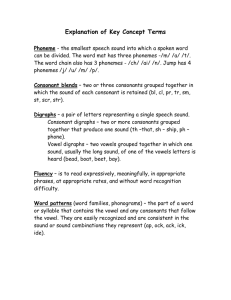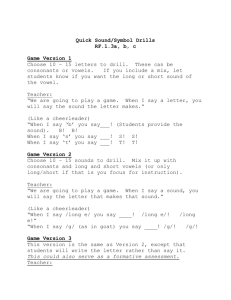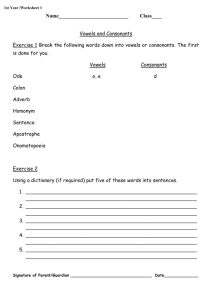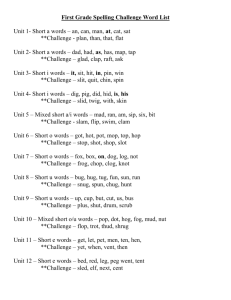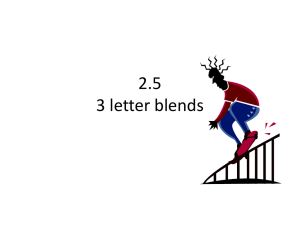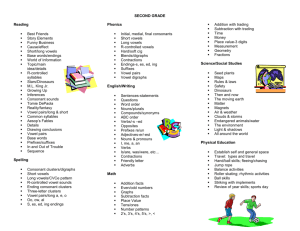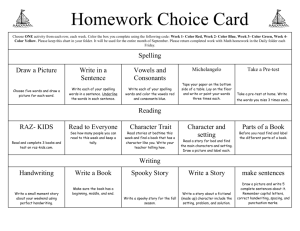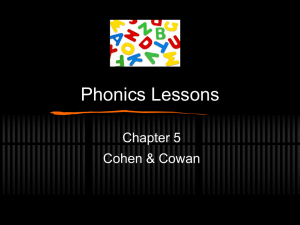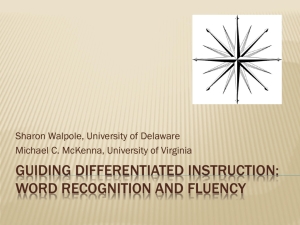Letter Name Alphabetic Overview
advertisement
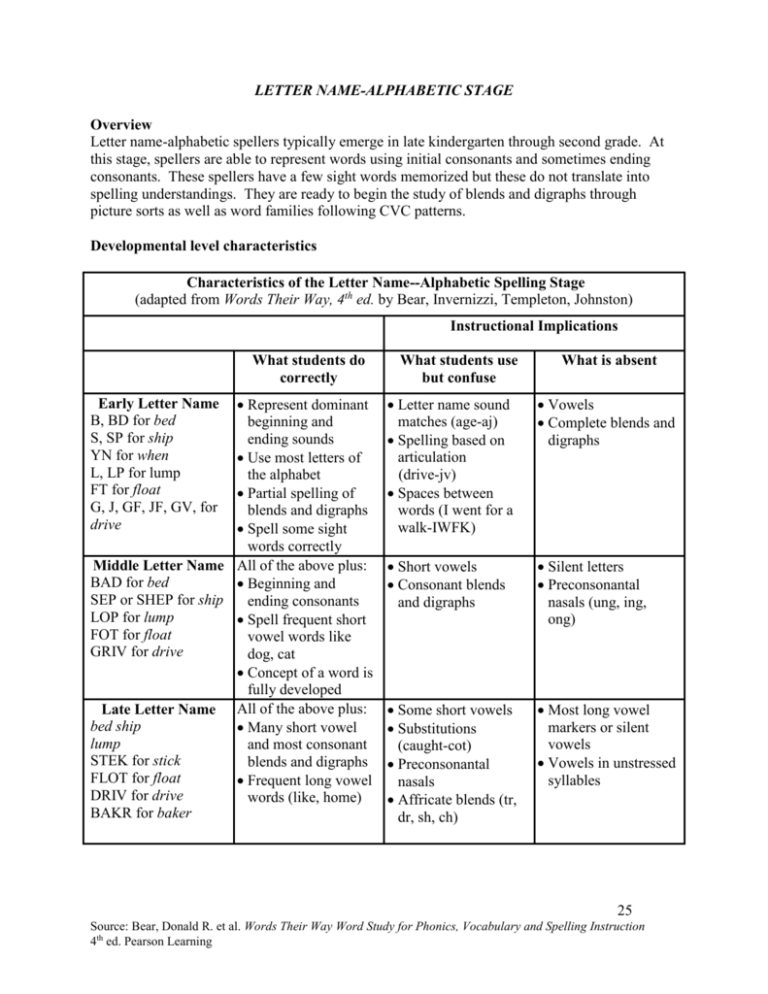
LETTER NAME-ALPHABETIC STAGE Overview Letter name-alphabetic spellers typically emerge in late kindergarten through second grade. At this stage, spellers are able to represent words using initial consonants and sometimes ending consonants. These spellers have a few sight words memorized but these do not translate into spelling understandings. They are ready to begin the study of blends and digraphs through picture sorts as well as word families following CVC patterns. Developmental level characteristics Characteristics of the Letter Name--Alphabetic Spelling Stage (adapted from Words Their Way, 4th ed. by Bear, Invernizzi, Templeton, Johnston) Instructional Implications What students do correctly Represent dominant beginning and ending sounds Use most letters of the alphabet Partial spelling of blends and digraphs Spell some sight words correctly Middle Letter Name All of the above plus: BAD for bed Beginning and SEP or SHEP for ship ending consonants LOP for lump Spell frequent short FOT for float vowel words like GRIV for drive dog, cat Concept of a word is fully developed Late Letter Name All of the above plus: bed ship Many short vowel lump and most consonant STEK for stick blends and digraphs FLOT for float Frequent long vowel DRIV for drive words (like, home) BAKR for baker Early Letter Name B, BD for bed S, SP for ship YN for when L, LP for lump FT for float G, J, GF, JF, GV, for drive What students use but confuse What is absent Letter name sound matches (age-aj) Spelling based on articulation (drive-jv) Spaces between words (I went for a walk-IWFK) Vowels Complete blends and digraphs Short vowels Consonant blends and digraphs Silent letters Preconsonantal nasals (ung, ing, ong) Some short vowels Substitutions (caught-cot) Preconsonantal nasals Affricate blends (tr, dr, sh, ch) Most long vowel markers or silent vowels Vowels in unstressed syllables 25 Source: Bear, Donald R. et al. Words Their Way Word Study for Phonics, Vocabulary and Spelling Instruction 4th ed. Pearson Learning Student Spelling Sample This sample represents a student at the Letter Name – Alphabetic Stage. This student has beginning and ending consonant sounds, spells some sight words correctly, and has spaces between words. Vowels are absent in these misspellings. Errors include: HV for have MR for motor TKI for took PR for pictures JS for jets Instructional practices may include word study learning to spell short vowel words correctly specifically with the CVC pattern. General objectives in Standard V of HCPSS Language Arts Essential Curriculum Early Consonants—picture sorts Contrast specific consonants that students confuse Introduce digraphs and blends with picture sorts Introduce short vowels in same vowel word families using pictures and words Middle Study short vowels in mixed word families (at, it) Include digraphs and blends in study of word families Continue to study isolated blends and digraphs as needed (pr-prize, prince, proud) (tr-trip, truck, train) Late Study short vowels in CVC words outside of word families Review digraphs and blends especially affricate blends Study preconsonantal nasals Introduce r-controlled vowels (ar, or) Suggested activities See the enclosed Word Study Activities for a full explanation. Word wall Personal dictionaries Games Word Hunts Draw, label, cut, paste Word sorts Bingo Making words Word wheels 26 Source: Bear, Donald R. et al. Words Their Way Word Study for Phonics, Vocabulary and Spelling Instruction 4th ed. Pearson Learning Show me Tachtistoscopes 27 Source: Bear, Donald R. et al. Words Their Way Word Study for Phonics, Vocabulary and Spelling Instruction 4th ed. Pearson Learning
